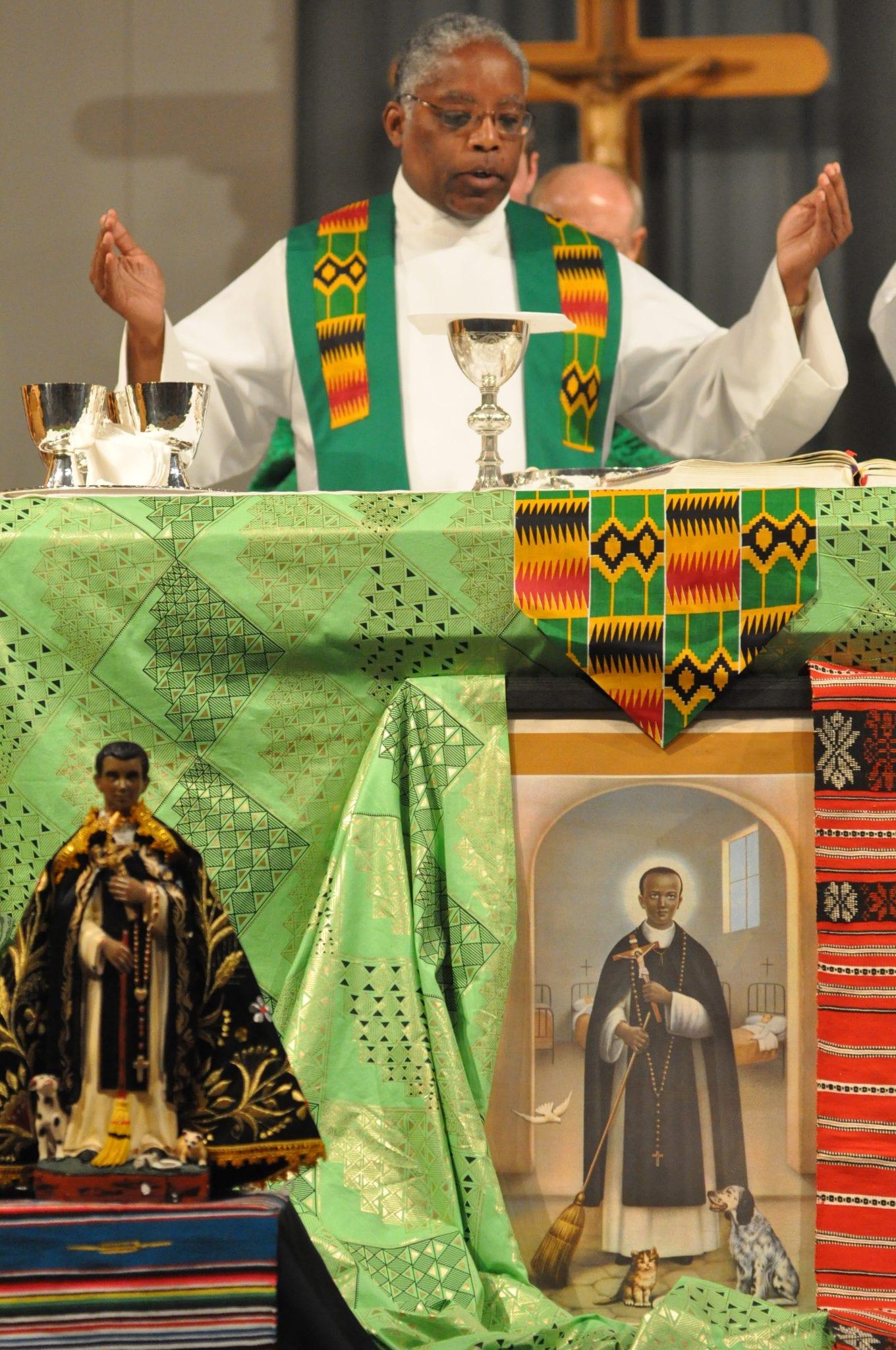INDIANAPOLIS — Cardinal Joseph W. Tobin has mentioned frequently that the Archdiocese of Newark, New Jersey, where he is to be installed January 6, has Mass celebrated in 22 languages each weekend.
It’s a large number, yes. But it might be a surprise to some that across central and southern Indiana, and in the Archdiocese of Indianapolis, Mass is celebrated in as many five languages.
Mass in Spanish is celebrated in 19 parishes in 12 cities and towns, in Vietnamese in Bloomington, and in Vietnamese, French and Korean in Indianapolis.
The Masses are just one of the many accomplishments of archdiocesan Intercultural Ministry, which celebrated 20 years of service this year.
The story begins in 1994. A volunteer group called Archdiocesan Black Catholics Concerned existed, as did a Hispanic apostolate operated out of St. Mary Parish in Indianapolis. But there was no official archdiocesan ethnic ministry.
When St. Bridget Parish in Indianapolis — one of three predominantly black Catholic parishes in the city — closed, Archbishop Daniel M. Buechlein, then head of the archdiocese, tapped Father Kenneth Taylor, then pastor of St. Bridget and Holy Trinity parishes, to start an archdiocesan multicultural ministry.
In January 1996, Buechlein commissioned the archdiocese’s first Multicultural Ministry Office, with Taylor as director. The office focused on addressing the spiritual needs of the Hispanic and black Catholic communities, based on cultural backgrounds and customs.
According to Taylor, the Office of Multicultural Ministry, which in 2014 became the Office of Intercultural Ministry, serves two primary purposes.
“One is to develop ministries to the various ethnic groups within the archdiocese,” he told The Criterion, Indianapolis’s archdiocesan newspaper. “The other is for the archdiocese to have a conduit to what’s going on nationally. We are representatives on the national level through the office. … So we can take what’s happening here to the national groups, and whatever is happening nationally gets back into the archdiocese.”
In time, a ministry was developed for the Vietnamese Catholic community, which worships at St. Joseph Church in Indianapolis. They would later be combined with ministries for Burmese, Filipino and Korean Catholics under the archdiocesan Asian/Pacific Islanders Ministry.
The milestones over the last two decades are many, said Taylor. One was the creation of a special Mass to celebrate the Vietnamese Tet, or lunar New Year.
Another milestone was the institution of a Mass to celebrate the Filipino tradition known as Simbang Gabi, a nine-day spiritual celebration leading up to Christmas. More recently, a monthly Mass celebrated in French was instituted at the request of French-speaking African Catholic immigrants.
In 2004, the first annual Mass for the November 3 feast of St. Martin de Porres was celebrated. The saint shared Hispanic and black heritage.
“The idea was to bring particularly the African-American and Hispanic communities together around St. Martin de Porres for common worship,” said Taylor. “It was a time when there was a lot of tension in Indianapolis between the African-American and Hispanic communities. … Over the years, I found out that other communities revere (St.) Martin de Porres as well, so other communities are now involved.”
Maria Pimentel-Gannon of St. Monica Parish in Indianapolis has been involved with the archdiocesan office since its inception, and has served several terms as president of the ministry’s board. She helped start the annual St. Martin de Porres Mass.
“I think it has brought us closer as an archdiocese,” she said of the Mass. “I think it has helped us to realize the richness we have in our archdiocese in the different cultures, to see that we are very intercultural, and to see that as a good thing, an asset.”
In 2012, Taylor led the ministry in a major effort to host the National Black Catholic Congress. Then in 2013, the ministry did the planning for Indianapolis to host the National Association of African Catholics that September.
In August 2013, he was succeeded by Franciscan Brother Moises Gutierrez as full-time director of what was later renamed the Intercultural Ministry.
Under his leadership from 2013-15, among other things, a leadership certification program to form pastoral leaders in the Asian/Pacific Islander, African-American and Hispanic communities was developed — the first of its kind in the United States.
Gutierrez’s successor is Oscar Castellanos, former Hispanic Ministry coordinator, and he became director of Intercultural Ministry.
Castellanos told The Criterion he is grateful for his predecessors’ perseverance “and saying ‘yes’ to this particular ministry. You planted the seed so that others could continue the harvesting.”
His vision is to have “more communities embracing diversity, and opening their doors and hearts to other ways of thinking, organizing, celebrating and praying.”
“I see this ministry promoting intercultural competency through awareness, knowledge and skills that would allow our offices, schools and parishes to be enculturated in a church that is more diverse than ever,” he said.
“Our world and this country are changing,” Pimentel-Gannon said. “The majority will be the minority, and in some cases already is. The more readily you are open to this, the more you’re going to enjoy the journey. It’s like fighting something that we have no control over, but rather being able to appreciate that we’re all God’s creation. … It’s a richer experience for everybody.”














